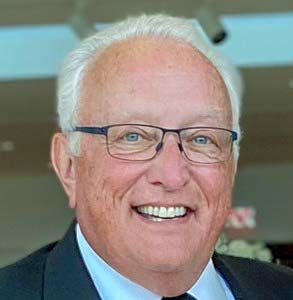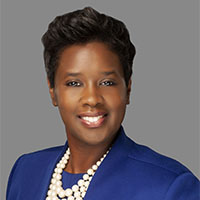Established by Chapter 93-12 of the North Carolina General Statutes, the North Carolina State Board of Certified Public Accountant (CPA) Examiners (the Board) is an independent, self-funded occupational licensing board that grants certificates of qualification as certified public accountants (CPAs) to those individuals who meet the statutory requirements. The Board also adopts and enforces the Rules of Professional Ethics and Conduct to be observed by CPAs in this State.
Other functions of the Board include registration of CPA firms; renewal of CPA certificates and CPA firm registrations; administration of the Uniform CPA Examination; administration of the continuing professional education (CPE) compliance program, administration of the Peer Review compliance program; disposition of administrative hearings with respect to State statutes and rules; and administration of other provisions of NCGS 93.
The Board consists of five (5) persons who are holders of valid and unrevoked CPA certificates issued under the provisions of NCGS 93 and two (2) persons who are not CPAs who represent the public at large. The Governor appoints all Board members for three-year terms. Under NCGS 93B-10, a board member whose term has expired continues to serve until a successor is appointed.

Cherryville, NC • Term: 07/01/2025 – 6/30/2028
View BioBoard meetings are held monthly and are open to the public, but State law allows some portions of the meetings to be closed to the public. Meeting minutes are available within 90 days after a meeting.
| Date & Time | Location | Agenda |
|---|---|---|
| 01/21/2026, 10 a.m. | Board Office | 01-21-2026 Meeting Agenda |
| 02/16/2026, 10 a.m. | Room 205, Student Center, NC A&T State University | 02-16-2026 Meeting Agenda |
| 03/16/2026, 10 a.m. | Board Office | |
| 04/20/2026, 10 a.m. | Board Office | |
| 05/18/2026, 10 a.m. | Board Office | |
| 06/22/2026, 10 a.m. | Board Office | |
| 07/20/2026, 10 a.m. | Board Office | |
| 08/17/2026, 10 a.m. | Board Office | |
| 09/23/2026, 10 a.m. | Elon University | |
| 10/19/2026, 10 a.m. | Board Office | |
| 11/16/2026, 10 a.m. | Board Office | |
| 12/14/2026, 10 a.m. | Board Office |
The President is responsible for appointing members to the Board’s committees. When making the appointments, the President considers each member’s area(s) of interest and their knowledge of a committee’s subject matter.
| 2025-2026 Committees | |||
|---|---|---|---|
| Executive | Jodi K. Kruse, CPA, President | Mickey Payseur, CPA, Vice President | Ulysses Taylor, CPA, Esq., Secretary-Treasurer |
| Professional Education & Applications | Kecia Williams Smith, Ph.D., CPA, Chair | Tammy F. Coley, CPA | Ulysses Taylor, CPA, Esq. |
| Professional Standards | Mickey Payseur, CPA, Chair | Jodi K. Kruse, CPA | Maria M. Lynch, Esq. |
| Audit | Kecia Williams Smith, Ph.D., CPA, Chair | Jim Ahler, CAE | Jodi K. Kruse, CPA |
| Investment | Mickey Payseur, CPA, Chair | Tammy F. Coley, CPA | Ulysses Taylor, CPA, Esq. |
| Personnel | Maria M. Lynch, Esq., Chair | Mickey Payseur, CPA | Kecia Williams Smith, Ph.D., CPA |
| Strategy | Jodi K. Kruse, CPA, Chair | Jim Ahler, CAE | Ulysses Taylor, CPA, Esq. |
The Board has seven standing committees:
The President, Vice-President, and Secretary-Treasurer automatically serve on the Executive Committee. This Committee works with the Board’s Executive Staff to ensure that the Board fulfills its public protection mandate while operating fairly and efficiently. The Committee meets on an as-needed basis.
The Professional Standards Committee provides guidance to the Board staff on alleged violations of the North Carolina General Statutes and North Carolina Administrative Code related to the public practice of accountancy in North Carolina. The Committee does not determine guilt or innocence but makes recommendations to the full Board regarding the disposition of matters brought to the Committee by the Professional Standards Staff. The Committee meets monthly and requires a substantial time commitment. The Professional Standards Committee comprises three members of the Board as appointed by the President.
The Professional Education & Applications Committee works with the Board’s Exam and Licensing sections to review Uniform CPA Exam applications, original and reciprocal CPA certificate applications; CPA certificate reissuance and reinstatement applications; CPA firm registrations; CPE compliance matters; and other issues related to examination and licensure. The Committee makes recommendations to the full Board for approval or disapproval of all applications it reviews. The Committee meets monthly and may require a considerable time commitment. The Professional Education & Applications Committee comprises three members of the Board as appointed by the President.
The Audit Committee participates in hiring an independent auditor and works with the Board’s Executive Staff to prepare for the required annual audit. The Committee questions the Executive Staff and the auditors to evaluate the audit process and receive reports directly from the auditor concerning the audit’s findings. The Committee presents the auditor’s findings to the full Board, ensuring all members understand any auditors’ recommendations before formally accepting the audit report. The Committee may recommend changes in practices or reporting to maintain or bring the Board into a “best practices” position. The Committee meets at least twice a year (once at the beginning of the audit process and at the end of the audit process to discuss the final audit results with the auditors) and requires a moderate time commitment. The Audit Committee comprises three members of the Board as appointed by the President.
The Personnel Committee provides guidance, oversight, and support to the Executive Staff to develop and implement employee staffing, performance management, and compensation systems. The Committee verifies that personnel policies and procedures are compliant with state and federal labor laws and are applied consistently. Annually, the Committee conducts a performance evaluation of the Executive Director and reviews staff-level assessments completed by senior management. The Committee submits for approval to the full Board changes in employee compensation or benefits proposed by the Executive Staff. The Committee provides guidance to the Executive Staff on staff recruitment and retention, professional misconduct, conflicts of interest, and other personnel matters. The Committee meets at least once per year and requires a minimal time commitment. The Personnel Committee comprises three members of the Board as appointed by the President.
The Strategy Committee is responsible for assisting the Board with its responsibilities for the Board’s mission, vision, and strategic direction. The Strategy Committee advises the Executive Staff on strategic planning matters, including developing strategic objectives with measurable goals and time targets, developing a dashboard of key indicators, and monitoring the Board’s performance. The Strategy Committee comprises three members of the Board as appointed by the President. The Committee meets at least once per year.
The Investment Committee provides Board oversight and guidance to the Executive Staff related to the Board’s investment portfolio. Members of the Investment Committee are fiduciaries of the portfolio, responsible for overseeing investment policies, guidelines, investment performance, and related risk management. The Investment Committee comprises three voting members of the Board as appointed by the President. The Executive Staff serve as non-voting ex-officio members of the Committee. The Committee meets quarterly.
According to NCGS 93-12(14), “all fees and other moneys received by the Board pursuant to the provisions of the General Statutes shall be kept in a separate fund by the treasurer of the Board, to be held and expended only for such purposes as are proper and necessary to the discharge of the duties of the Board and to enforce the provisions of this Chapter. No expense incurred by the Board shall be charged against the State.” In other words, the Board is a non-appropriated, self-funded independent State agency that receives no State budget funds and is funded through application, license, registration, and renewal fees. The Board’s annual budget outlines both the income and expenditures expected to be received and paid during the Board’s fiscal year (April 1 through March 31).
NCGS 93B-4 requires each North Carolina licensing board with a budget of at least $50,000 to conduct an annual financial audit of its operations and to provide a copy to the State Auditor.
NCGS 93B-2 requires each North Carolina occupational licensing board to file an annual occupational licensing board report with the Office of State Budget & Management, the Attorney General, the Secretary of State, the State Auditor, the State Controller, the Joint Legislative Administrative Procedure Oversight Committee, and the Department of Military and Veteran Affairs.

David R. Nance, CPA
Executive Director

S. Lynne Sanders, CPA
Deputy Director
Frank Trainor, Esq.
Staff Attorney
Felecia Ashe
Accounting Specialist
Phyllis W. Elliott
Exam Specialist
Cammie Emery
Licensing Specialist
Alice Grigsby
Licensing Specialist
Lisa Hearne-Bogle
Communications Officer
Julia Mayo
Professional Standards Specialist
Jeffrey Tankard
Professional Standards Specialist
Vanessia Willett
Administrative Specialist
Information on applying for the Uniform CPA Exam as a North Carolina candidate
Information on applying for an original or reciprocal North Carolina CPA license
Information for North Carolina CPAs on license renewal, status changes, and CPE requirements
Information on registering a CPA firm, firm registration renewals, peer review compliance, and the practice privilege for out-of-state firms
Information on choosing a CPA or CPA firm, verifying a practitioner’s license, and filing a complaint
Search the database for information on North Carolina CPAs and CPA firms
Search the Database1101 Oberlin Road
Suite 104
Raleigh, NC 27605-1169
Mailing Address
PO Box 12827
Raleigh, NC 27605-2827
(919) 733-4222 Phone
(919) 733-4209 Fax
©2026 NC State Board of CPA Examiners
This div intentionally left blank.





